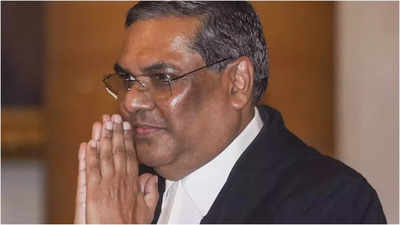CJI Sanjiv Khanna (PTI Image) NEW DELHI: Justice Sanjiv Khanna , who has served as the Supreme Court judge since January 2019, was sworn in as the 51st Chief Justice of India on Monday. President Droupadi Murmu administered the oath of office to Justice Khanna at the swearing-in ceremony held at Rashtrapati Bhavan. Justice Khanna will demit office on May 13, 2025.
He succeeds Justice D Y Chandrachud, who demitted office on Sunday on attaining the age of 65 years. He was one of the justices that are involved in several landmark cases , including affirming the use of electronic voting machines (EVMs), overturning the electoral bonds scheme, supporting the abrogation of Article 370, and granting interim bail to former Delhi chief minister Arvind Kejriwal. What are his powers? Judicial Authority Court Leadership: The CJI chairs Supreme Court sessions and maintains authority to oversee cases, particularly those involving constitutional matters and significant issues.
Formation of Benches: The CJI holds the power to establish and determine the composition of benches, especially for constitutional hearings. Administrative Authority Judicial Appointments: Through the collegium system, the CJI holds significant influence in the selection and transfer of judges within the Supreme Court and High Courts. Court Operations: The CJI oversees case distribution and court scheduling to ensure effective Supreme Court functioning.
Consultative Function The CJI provides guidance to the President .


















